Latest DePIN News

a year ago
ATOR's Journey: Building a Decentralized Future for Internet Privacy
A year ago, the Tor Project made a significant decision to remove all ATOR Relays from their network, which sparked a vision for a new decentralized future. Instead of surrendering, the team aimed to create a self-scaling, trustless network designed to enhance privacy for users worldwide. Their goal is to disrupt the VPN market by combining speed, reliability, and user-friendliness through bespoke hardware, ultimately making private browsing accessible to billions. This vision has now materialized with the launch of the Anyone Network, which boasts an impressive 5000 active relays, establishing itself as one of the largest and fastest mixnets globally.
Reflecting on the past year, the team expresses gratitude to their community for their unwavering support during challenging times. Despite the difficulties, the project demonstrated resilience and strength, showcasing the power of decentralization and community alignment. The leadership and engineering teams remained intact throughout the transition, empowering former community members to take on more significant roles within the ecosystem. The project has evolved into an open-source initiative, expanding from a single Smartweave registration protocol to over 30 active repositories contributing to blockchain technology, privacy, hardware, and applications.
Looking ahead, the team acknowledges the journey is far from over, with plans to further decentralize the network following the transition to their AO distribution protocol. They emphasize that community governance will play a crucial role in maintaining the network's safety and performance. The spirit of ATOR is now emblematic of overcoming setbacks in the Web3 space, and the team is committed to transparency through regular updates. As they tackle the larger challenge of global privacy adoption, they remain dedicated to building a Web3 ecosystem that has the potential to transform lives.
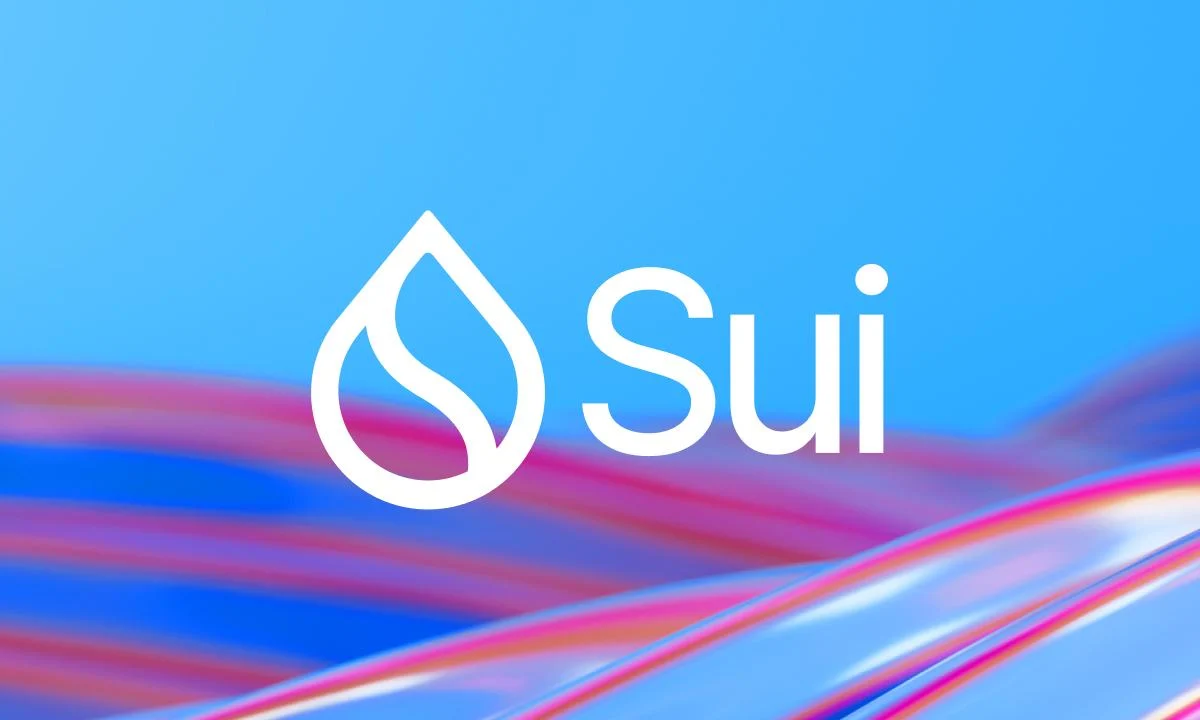
a year ago
Sui Foundation Partners with Franklin Templeton to Enhance Blockchain Innovation
On November 22, 2024, the Sui Foundation announced a strategic partnership with Franklin Templeton Digital Assets, aimed at driving innovation within the Sui blockchain ecosystem. This collaboration is set to enhance the development of Sui, a Layer 1 and smart contract platform, by creating value opportunities for builders of blockchain-based solutions. Jameel Khalfan, Head of Ecosystem Development at Sui, highlighted that the partnership is a validation of Sui's technology, which was inspired by challenges in decentralized finance that Franklin Templeton is addressing.
Franklin Templeton Digital Assets has been actively involved in blockchain technology for several years, focusing on building solutions, running node validators, and developing investment strategies. Their dedicated digital assets research team employs tokenomic analysis and data science insights to guide product development and investment decisions. Tony Pecore, SVP and Director of Digital Asset Management at Franklin Templeton, expressed excitement about the advancements being made by the Sui team, noting that blockchain technology has often faced technical limitations despite its growing interest.
The Sui ecosystem is already home to innovative projects such as DeepBook, a decentralized finance solution akin to a central limit order book, and Karrier One, which supports a decentralized mobile network. Additionally, Sui has recently launched native USDC, providing users with direct access to a widely used stablecoin while mitigating risks associated with bridged assets. As a secure and scalable platform, Sui is positioning itself as a premier destination for application builders across various sectors, including gaming, DeFi, and tokenized securities.
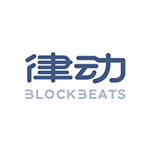
a year ago
Robot Pump Launches on IoTeX Mainnet
BlockBeats news on November 21st reveals that the fair launch platform for meme tokens, Robot Pump, has officially landed on the IoTeX mainnet. Users can now launch and trade meme coins on the IoTeX blockchain using Robot Pump. IoTeX, a leading ecosystem in the hot DeFi race, is associated with DePIN and related AI, RWA directions. Robot Pump claims to promote the development of 'deep-tech' meme culture in the DePIN and associated AI, RWA fields. IoTeX's co-founder and CTO, Qevan, mentioned that many memes are based on real-world mappings. Compared to the high technical barriers and long construction cycles of DePIN, AI, and RWA projects, meme culture, with its low entry barriers, fast pace, and broad market foundation, allows the public to more efficiently experience the process of Crypto transformation of real-world influence. It is worth noting that IoTeX's first on-chain DePIN identity system, ioID, was officially launched and integrated into Robot Pump today. ioID will transform physical devices into on-chain assets, with each physical device having a unique on-chain ID for verification. The combination of Robot Pump and ioID may provide a pathway for the rightful ownership verification of real-world mapped memes.

a year ago
The Graph Introduces GRC-20 Standard to Enhance Web3 Data Structure
The Graph, a decentralized indexing protocol that functions similarly to Google for blockchains, has unveiled a new data standard for Web3 known as GRC-20. This initiative aims to enhance the way information is structured, shared, and interconnected across decentralized applications. The announcement coincided with developer Yaniv Tal's Graph Improvement Proposal, which emphasizes the importance of knowledge graphs in creating a more comprehensive understanding of data by linking and labeling information. The GRC-20 standard is set to replace the existing Resource Description Framework (RDF), which has been deemed inadequate for the needs of Web3 due to various technical limitations.
The GRC-20 standard introduces core concepts such as Spaces, Entities, Relations, and Types, which will allow developers to define and organize their data more effectively. This new framework is designed to foster a common language for knowledge, ultimately striving to fulfill the vision of an open, verifiable, and composable Web3. The Graph plans to release a suite of tools in the coming weeks to assist developers in implementing the GRC-20 standard. The Graph Improvement Proposal is currently open for community feedback before it is finalized, highlighting the project's commitment to collaborative development.
Since its launch in 2018 and the activation of its mainnet in December 2020, The Graph has established itself as a vital resource for developers, enabling them to create decentralized applications (DApps) more efficiently. The platform claims it can significantly reduce development time from months to mere days. With over 70 blockchains indexed, The Graph continues to evolve, recently partnering with Chainstack to provide a hosted service for subgraphs, further enhancing accessibility and usability for developers in the blockchain ecosystem.
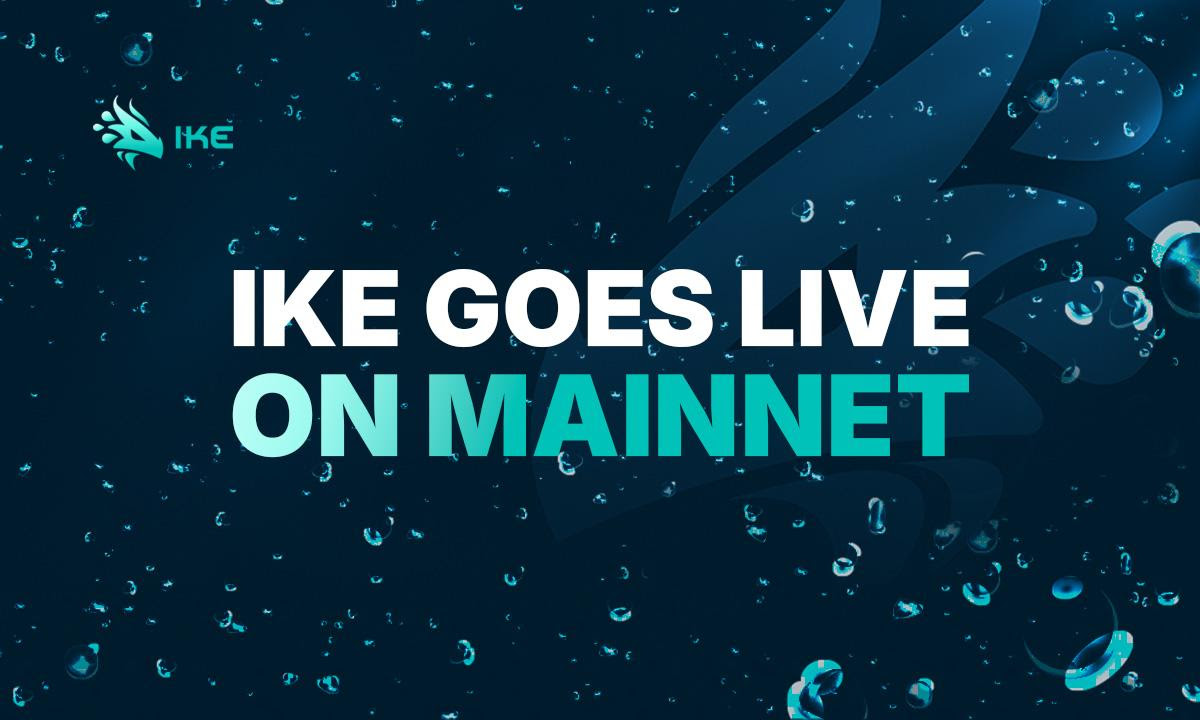
a year ago
Ike Launches Liquid Staking Token sA0 on Aleph Zero Mainnet
Ike, a composable liquid staking protocol, has officially launched its Liquid Staking Token (LST), sA0, on the Aleph Zero mainnet. This launch represents a significant milestone for both Ike and Aleph Zero, a layer 1 blockchain known for its privacy features, scalability, and low transaction fees. The introduction of sA0 allows users to engage with the Aleph Zero network more flexibly, enabling them to stake their AZERO tokens while maintaining liquidity and earning rewards. This innovative approach aims to enhance the overall staking experience for users within the Aleph Zero ecosystem.
The sA0 token not only provides liquidity for stakers but also integrates seamlessly with Aleph Zero's expanding DeFi ecosystem. This integration enhances the utility and value of sA0, encouraging more users to participate in staking, which in turn supports the network's security and resilience. By allowing users to receive sA0 tokens in exchange for their staked AZERO, the protocol ensures that users can remain liquid while still benefiting from staking rewards. This dual advantage is expected to attract a wider audience to the Aleph Zero platform.
Stephen Novenstern, the Founder of Ike, expressed his enthusiasm regarding the mainnet launch, highlighting the importance of community involvement in the governance of the protocol. He emphasized that the launch of sA0 is just the beginning of Ike's commitment to creating a decentralized and community-driven ecosystem. Looking ahead, Ike plans to expand the utility of sA0 and introduce governance features that empower the Aleph Zero community to shape the future of the platform, marking a promising development in the realm of liquid staking protocols.

a year ago
Aethir Integrates LayerZero to Enhance Multichain AI and Gaming Ecosystem
Aethir is making significant strides in the blockchain space by integrating LayerZero to enhance its capabilities as a multichain AI and gaming ecosystem. This integration aims to bring the omnichain vision closer to reality, allowing for seamless interactions across different blockchain networks. Aethir’s native token, $ATH, will be available for testing on ZKSync, as announced on the platform's official X account. The integration with LayerZero will facilitate cross-chain operations, enabling users to move $ATH tokens effortlessly between various chains, thereby expanding the utility of the token within the ecosystem.
The Aethir platform is built on a robust decentralized cloud infrastructure that supports AI and gaming applications. With over 43,000 high-quality GPUs, including more than 3,000 NVIDIA H100s, Aethir is well-equipped to handle complex AI computations. The network also features over 32,000 globally distributed Aethir Edge devices, enhancing its computational capabilities. The $ATH token plays a crucial role in this ecosystem, allowing stakeholders such as Aethir Checker Nodes, Edge device operators, and cloud hosts to participate in the network's growth and functionality. The collaboration with LayerZero will enable Aethir to transition to the Sophon ZK chain, enhancing its multichain capabilities and facilitating the execution of smart contracts across different blockchains.
To further bolster its GPU cloud infrastructure, Aethir is also integrating Stargate’s omnichain liquidity protocol, which will simplify the exchange of $ATH tokens. This integration will provide access to unified liquidity pools, instant finality, and various staking and farming options. These advancements are designed to propel Aethir into a multichain future, ensuring that AI and gaming workloads can be accessed directly across multiple blockchain networks. As Aethir continues to innovate, it is set to play a pivotal role in the evolution of decentralized cloud solutions for the AI and gaming sectors.

a year ago
Ike Launches Liquid Staking Token sA0 on Aleph Zero
Ike has officially launched its Liquid Staking Token (LST), sA0, on the Aleph Zero network, marking a significant milestone for both the project and its community. This innovative token allows users to stake their AZERO tokens while maintaining liquidity, enabling them to earn rewards without locking up their assets. The introduction of sA0 not only enhances the staking experience but also opens up new opportunities for participation within Aleph Zero’s expanding ecosystem. Users can now engage in staking and utilize their sA0 tokens simultaneously, promoting a more dynamic interaction with the network.
The benefits of sA0 are manifold. Firstly, it provides liquidity alongside rewards, as users receive sA0 tokens in exchange for their staked AZERO, allowing them to remain active in the ecosystem. Additionally, sA0 integrates smoothly with Aleph Zero’s DeFi landscape, enhancing the utility and value for stakers. Furthermore, by incentivizing more users to participate in staking, sA0 contributes to the overall security and resilience of the Aleph Zero network, fostering a robust environment for growth.
Ike's launch of sA0 is a crucial step towards progressive decentralization, with plans for community-driven governance features and a transparent validator registration process. The initial launch included seven validators, including notable partners like Deutsche Telekom and STC Bahrain. As the project evolves, Ike aims to empower the Aleph Zero community to shape its future through increased participation and governance. Founder Stephen Novenstern emphasized the importance of this launch, stating it is just the beginning of their commitment to building a decentralized, community-driven ecosystem that enhances network security and user experience.
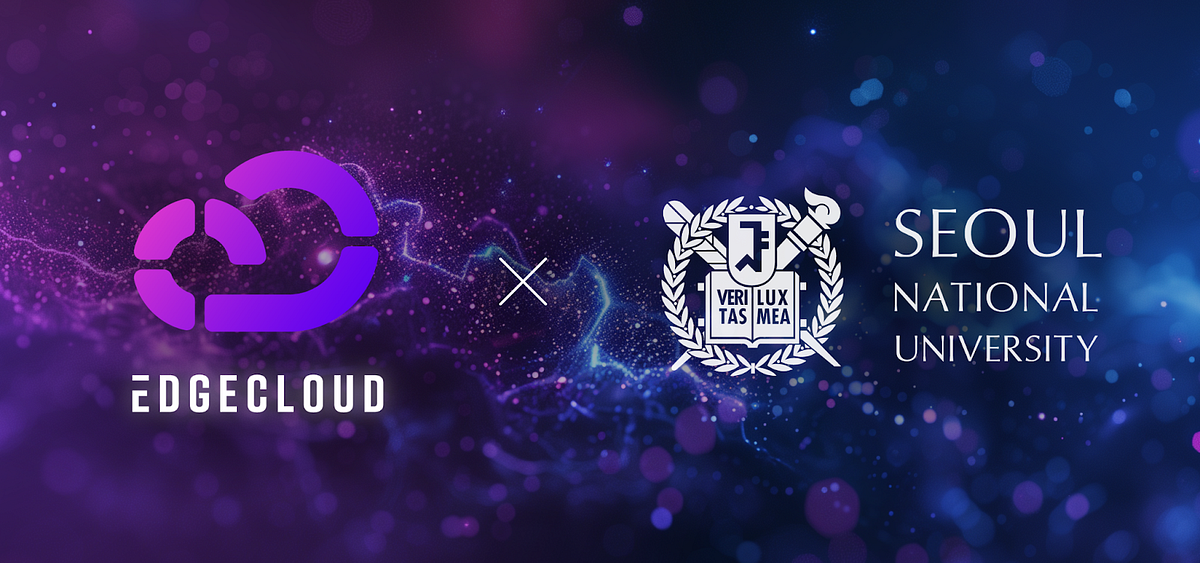
a year ago
Theta Partners with Seoul National University to Enhance AI Research
Theta has announced a significant partnership with Seoul National University (SNU), South Korea's leading academic institution, to enhance AI research through its EdgeCloud platform. This collaboration will specifically benefit SNU's AIoT Lab, directed by Associate Professor Hyung-Sin Kim, who is renowned for his expertise in Ambient AI and IoT systems. The partnership aims to accelerate research in areas such as AI-powered healthcare innovations and real-time data processing, leveraging Theta's advanced hybrid cloud GPU resources. SNU, established in 1946, is recognized for its excellence across various disciplines and is consistently ranked among the top universities in Asia.
Since the launch of EdgeCloud in June, Theta has gained traction in both U.S. and Korean academic circles, partnering with several prestigious institutions including the University of Oregon and KAIST. The AIoT Lab at SNU has already made notable contributions to the field, with Professor Kim leading efforts that have garnered numerous awards and high-impact research grants. Recent achievements include accolades at major conferences and competitions, showcasing the lab's commitment to advancing AI and IoT technologies. The integration of Theta's infrastructure is expected to further enhance the lab's capabilities in developing adaptive models that prioritize data privacy and real-time health insights.
Professor Kim expressed enthusiasm about the collaboration, highlighting how Theta's decentralized AI infrastructure will redefine the GPU landscape and enable groundbreaking advancements in Ambient AI and IoT applications. This partnership not only reinforces Theta's commitment to supporting world-class AI research but also positions the company as a key player in the academic landscape, with aspirations to onboard more top-tier institutions in Asia and North America. As Theta continues to expand its influence, the collaboration with SNU marks a pivotal step towards fostering innovative real-world applications in AI and IoT domains.

a year ago
IoTeX and GEODNET Collaborate to Enhance DePIN Device Verifiability
IoTeX and GEODNET have announced an innovative collaboration aimed at enhancing the verifiability of Decentralized Physical Infrastructure Network (DePIN) devices. This partnership focuses on the integration of GEODNET's new GEO-PULSE device with IoTeX's ioID for on-chain device identity and W3bstream for zero-knowledge proofs. The collaboration is designed to ensure that devices within a DePIN can be independently verified for authenticity and operational integrity, thereby fostering trust and increasing demand for DePIN networks. The GEO-PULSE device will be able to register on-chain, sign data for provenance, and demonstrate its real-world activity, making it a significant advancement in the field of verifiable devices.
The GEO-PULSE device, touted as the world's most accurate car navigation tool, offers a remarkable improvement in lane-level positioning accuracy compared to traditional GPS systems. This device not only benefits consumers but also provides commercial operators and web3 enthusiasts with the opportunity to earn rewards through its integration with the GEODNET network. Users can earn $GEOD tokens by completing tasks on the network, and those who register their devices with an ioID will also qualify for a share of $100,000 worth of $IOTX tokens. This initiative aims to incentivize user participation and promote the adoption of verifiable technologies in the DePIN sector.
The collaboration between IoTeX and GEODNET is set to revolutionize the DePIN landscape by establishing a seamless integration of their technologies. Users can easily create a decentralized identity for their GEO-PULSE device through the GEODNET mobile app, which will then interact with IoTeX's blockchain for verification. This process includes the generation of zero-knowledge proofs to validate the device's liveness, location, and movement. As the GEO-PULSE devices roll out in January, a comprehensive onboarding guide will be provided to assist users in maximizing their participation in this transformative initiative, ultimately contributing to a more verifiable and trustworthy DePIN ecosystem.
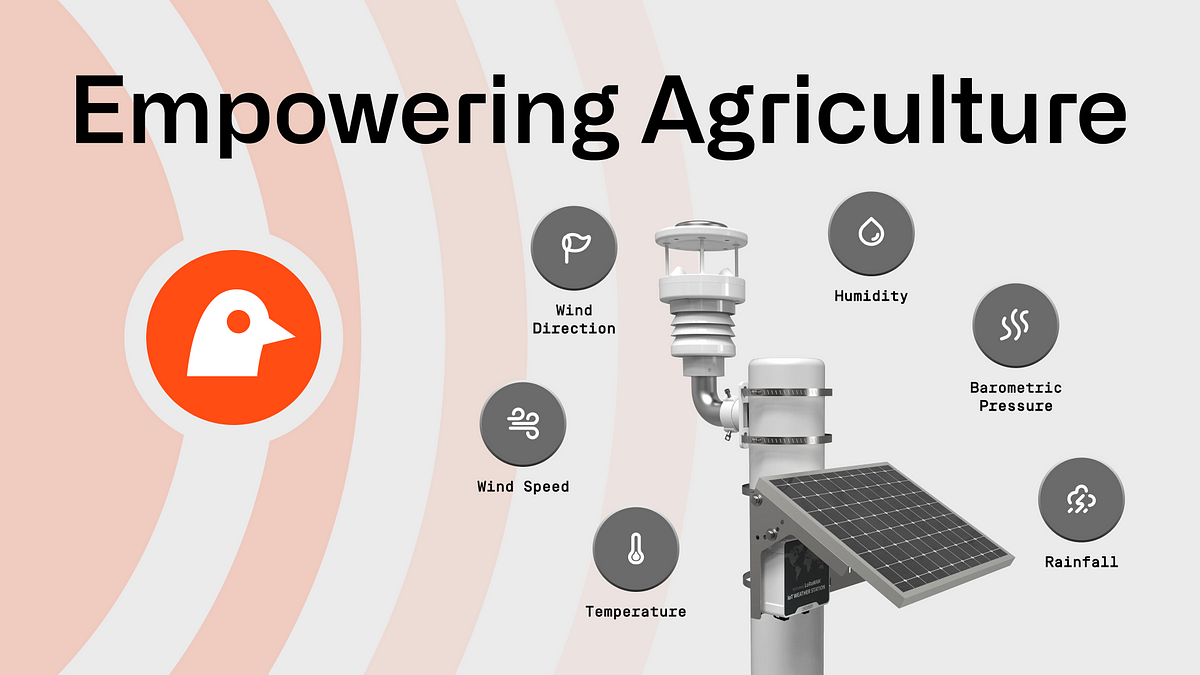
a year ago
Revolutionizing Agriculture with IoT Technology
The integration of IoT technology in agriculture is transforming the sector, allowing farmers to make informed, data-driven decisions that enhance productivity and sustainability. The global smart agriculture market is projected to reach $20 billion by 2026, driven by the increasing adoption of IoT solutions across farms. These technologies optimize various aspects of crop and livestock management, helping farmers reduce costs while improving yields and environmental stewardship. As IoT devices proliferate, they offer significant advantages, including automation of resource management and real-time data collection on critical factors such as weather and soil conditions.
IoT devices like weather stations and soil sensors play a pivotal role in smart agriculture. Weather stations provide essential data on temperature, humidity, and precipitation, enabling farmers to make timely adjustments to irrigation and planting schedules. Soil sensors deliver real-time insights into moisture levels, optimizing water use and fertilization strategies. Additionally, livestock monitoring collars ensure proactive management of animal health and location. By automating irrigation and resource distribution based on real-time data, farmers can conserve resources and enhance crop health, ultimately leading to increased profitability.
Chirp's platform enhances the effectiveness of these IoT devices by integrating them into a cohesive system managed from a single dashboard. The incorporation of blockchain technology further strengthens data management, ensuring secure, tamper-proof storage and traceability of the vast amounts of information generated by IoT devices. Chirp's Blackbird miners provide long-range connectivity for these devices, facilitating reliable data transmission over large areas without the need for individual internet connections. This seamless integration of IoT technology positions Chirp as a vital partner for farmers, empowering them to tackle challenges and capitalize on new opportunities in the evolving agricultural landscape.
Signup for latest DePIN news and updates